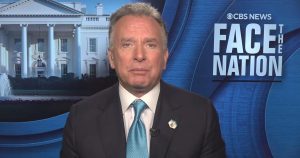A Personal Struggle, A Broader Issue: Hunter Schafer’s Passport Saga
Hunter Schafer, the actress known for her role in HBO’s Euphoria, has recently found herself at the center of a heated debate over identity and government policy. Schafer, who is transgender, took to TikTok to share her experience with a new passport that listed her gender as male, despite her identifying as female. This unexpected change is a direct result of President Donald Trump’s January 20 executive order, which mandates that the U.S. government only recognize an individual’s biological sex assigned at birth. The order also rescinded a 2022 Biden-era rule that allowed passport applicants to choose an "X" gender marker, representing a non-binary or unspecified gender identity. Schafer’s story is a poignant reminder of the real-life consequences of political decisions and the ongoing struggles faced by the transgender community.
A Life-Altering Realization
For Schafer, the reality of the executive order hit home when she received her new passport after her previous one was stolen while filming in Barcelona. She had applied for a replacement through the usual channels, expecting the process to be routine. However, upon opening the new document, she was shocked to find that her gender marker had been changed from female to male. Schafer shared her disbelief in the TikTok video, stating, "I had a bit of a harsh reality check today." She emphasized that she had never altered her gender on her birth certificate and had consistently identified as female on all previous passports since her teenage years. The sudden change left her feeling vulnerable and concerned about the implications of this policy shift.
The weight of bureaucracy
The State Department’s Bureau of Consular Affairs has implemented the new policy, stating that U.S. passports will only be issued with "M" or "F" markers reflecting the applicant’s biological sex at birth. This change undermines the progress made during the Biden administration, which had allowed for the inclusion of the "X" gender marker, a step toward greater inclusivity for non-binary individuals. Schafer’s experience highlights the bureaucratic hurdles and emotional toll faced by transgender individuals attempting to navigate a system that often fails to recognize their true identities. ThePagerThe incident has left Schafer, like many others, questioning how such changes can occur without their consent or knowledge. Schafer remarks, "I’m not making this post to fearmonger or to create drama or receive consolation. I don’t need it, but I do think it’s worth posting to sort of note the reality of the situation and that it is actually happening."
Privilege and Purpose
Schafer acknowledges her position of privilege as a white, famous actress, which grants her a platform to speak out against injustices that many others cannot. She uses this privilege to raise awareness, emphasizing that no one, regardless of their status, is immune to the effects of such policies. Schafer’s message is clear: this is not just a personal issue but a broader societal problem that requires attention and action. By sharing her story, she hopes to shed light on the insidious nature of policies that erode the rights of marginalized communities.
Resilience in the Face of Adversity
Despite the challenges posed by the new passport, Schafer remains steadfast in her identity. She assure her audience that the gender marker on her passport does not define her, stating, "I don’t go give a f— that they put an M on my passport. It doesn’t change really anything about me or my transness. However, it does make life a little harder." Schafer also expressed concern about how the change will affect her upcoming international travel, as she anticipates having to frequently "out" herself to border officials and others. Her resilience is a testament to the strength of the transgender community, which continues to assert its existence and humanity despite systemic challenges.
The Fight Continues
The controversy surrounding Schafer’s passport is part of a larger legal and cultural battle. A federal lawsuit challenging Trump’s executive order has been filed by seven individuals, arguing that the policy violates their right to live authentically and free from discrimination. Schafer’s story serves as a powerful reminder of the importance of advocacy and the need for solidarity in the face of adversity. She concludes her video with a message of hope and defiance, declaring, "Trans people are beautiful. We are never going to stop existing. I’m never gonna stop being trans. A letter and a passport can’t change that," Schafer added. Her words resonate not only with her own experience but with the shared struggle of countless others who refuse to be erased or invalidated by policies that fail to recognize their true selves. Schafer’s courage in speaking out underscores the enduring strength and resilience of the transgender community, which continues to fight for recognition, acceptance, and equality.















